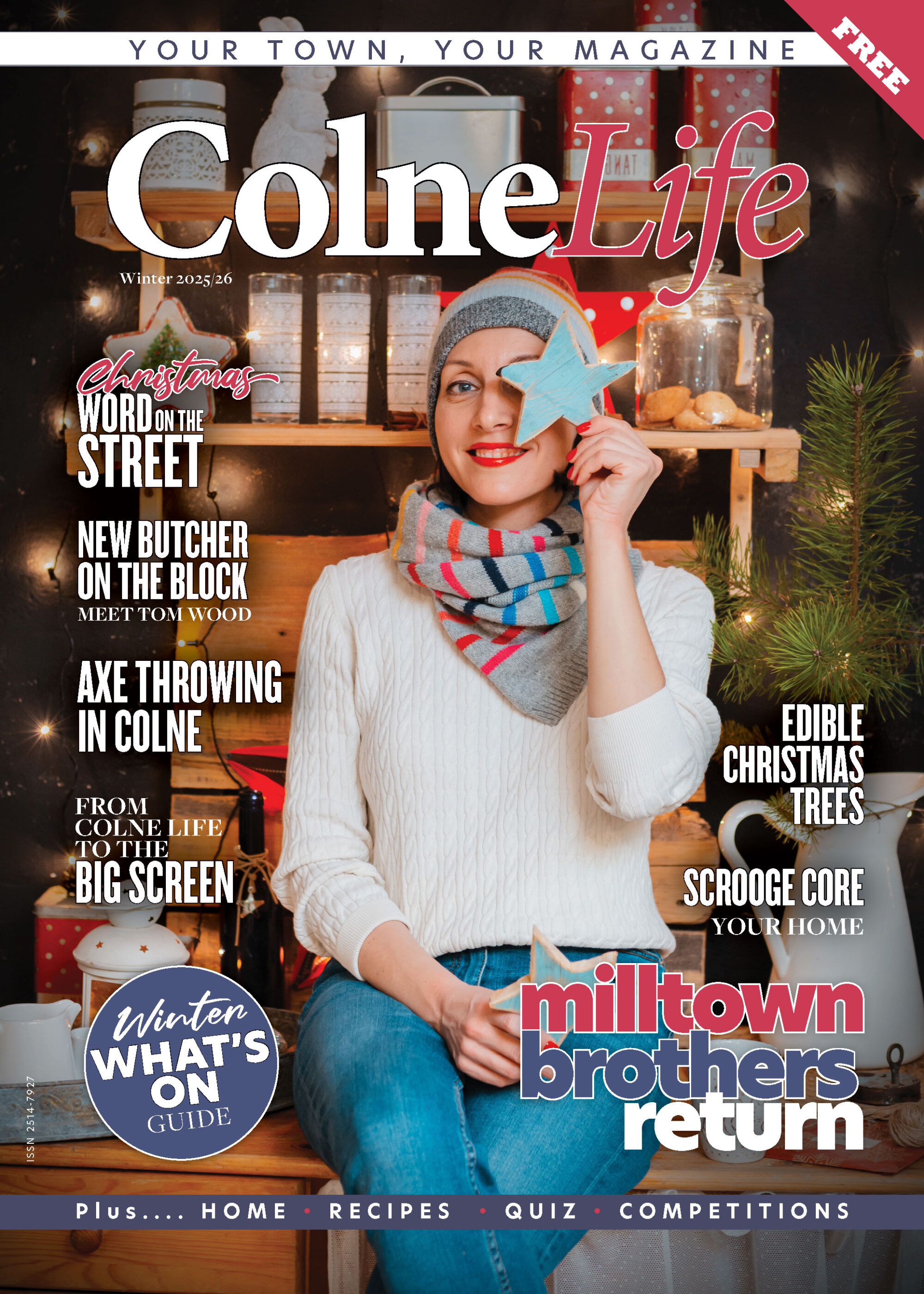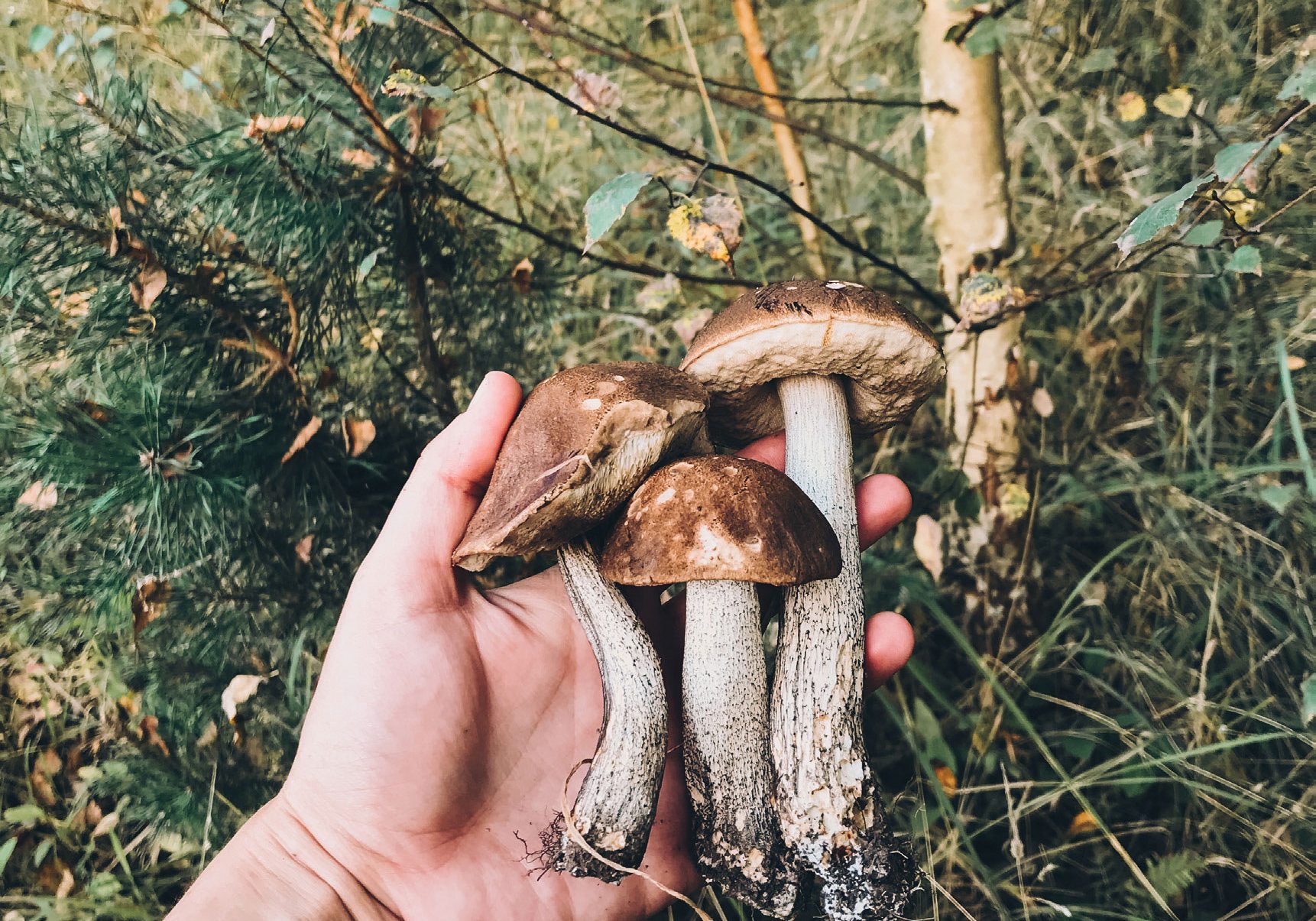
Food for Free – Winter Foraging
by Laura Storey
Foraging fanatic Pete Compston takes us on a wild shopping trip on our doorstep
As the seasons turn towards winter, nature’s bounty has well and truly emerged. Berries create a colourful medley, trees are overburdened with fruit, and mushrooms are popping up from the forest floor.
For many of us, though, these plants may not appear as food at all – a supermarket shop is required for picking up essentials, but for Colner Pete Compston, founder of Pendle Plant Craft, which runs activities across Colne and Pendle, a walk through the woods is his weekly shop with some winter foraging.
An experienced forager, Pete can spot food in the nature around us, but he wasn’t always this way. “About seven years ago, I had a really tough time,” Pete explains. He had an outdoor job, and luckily, spending time in nature helped him to heal. “I don’t want to seem like a total hippie,” Pete laughs. “But I was spending a lot of time with trees, and I started to learn more about them. I discovered how interconnected nature is – it teaches us a lot about ourselves and how we are more part of nature than we act.”

Foraged mushrooms
This discovery encouraged Pete to reignite his connection with nature. He spent a year living almost solely off the plants he foraged, and as his understanding bloomed, so did his mental health. “I couldn’t get help from professionals,” he explains. “When antidepressants didn’t work for him, he was left feeling hopeless. It was only when he began to forage that he realised there were steps he could take himself to get on the road to better mental health. “You can’t learn to forage without learning to be your responsibility,” he says. “Foraging is ancient knowledge that doesn’t rely on systems but on ourselves and community. It can help people like me who fall through the gaps, especially in mental health services. I’m acutely aware of how wonderful these services are as I’ve been in roles supporting vulnerable people, but they can’t cover everything.”
As foraging helped Pete overcome his mental health issues, he was keen to share it with others. During the early days of the pandemic in 2020, Pete decided to post a status on Facebook asking if anyone wanted to go out foraging with him and collect some free food.
“I didn’t expect anything from it, really,” he explains. But it was the start of Pendle Plant Craft, which Pete describes as “a lovely bunch of folk – adventuring in Pendle and sharing knowledge and understandings of nature.
“… a lovely bunch of folk – adventuring in Pendle and sharing knowledge and understandings of nature.”
“There’s been some truly magical moments with people learning together,” he beams. “It’s been wonderful sharing it and seeing others sharing what they’ve learned.”
Anyone can go to the group’s free foraging walks around the Pendle countryside; for more information, go to the Facebook page – Pendle Plant Craft (free foraging and well-being walks).
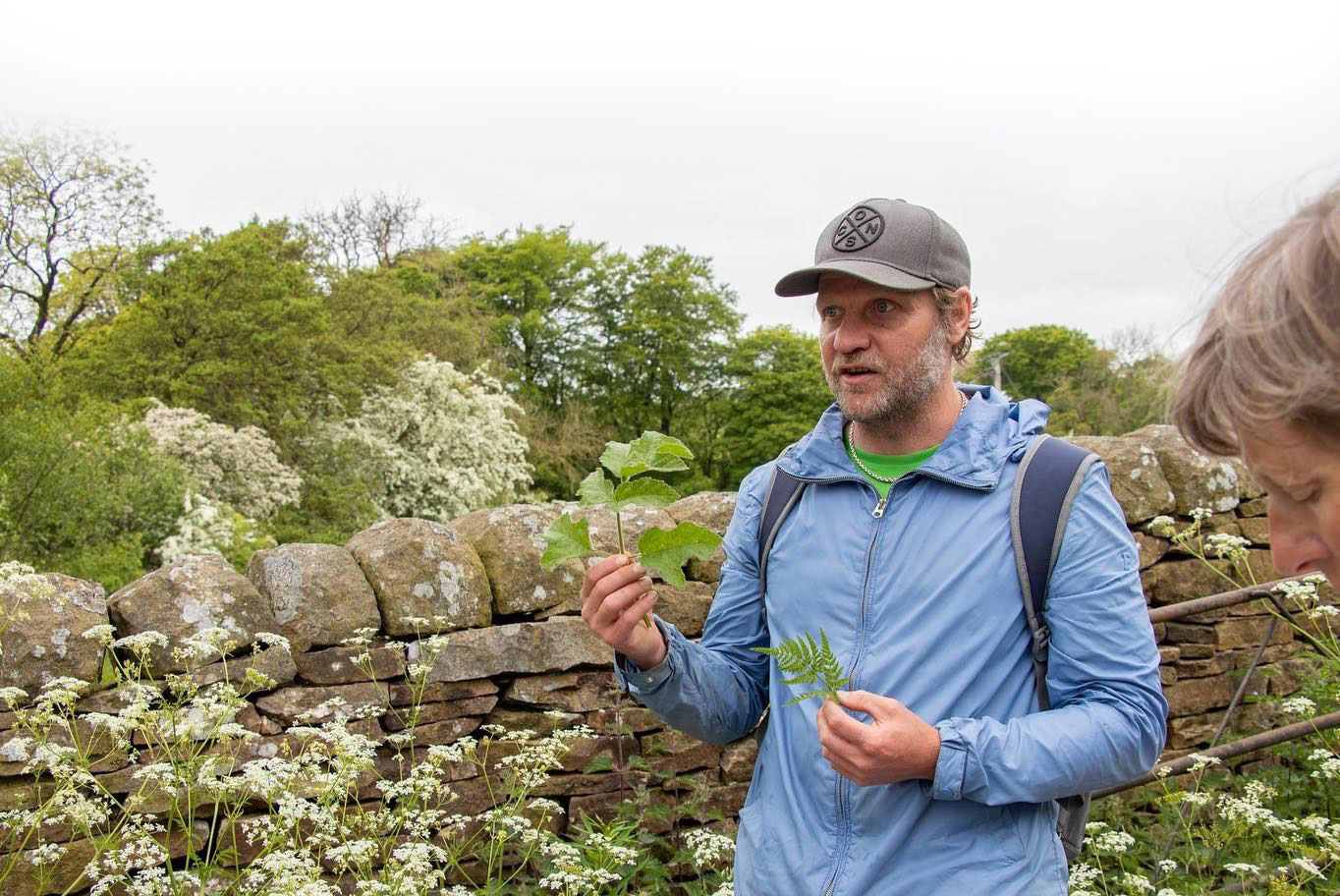
Pete shares his foraging knowledge.
Pete’s Winter Foraging Tips
Winter unveils a hidden world of remarkable forageables, nature’s treasures waiting to be explored. Personal responsibility takes centre stage in this journey of discovery, as does the importance of thorough research. I’ll provide you with very brief insights into just a few of the many winter wonders, but for a deeper dive, look these plants up yourself and consider joining our free foraging walks with Pendle Plant Craft and becoming part of our vibrant Facebook group. It’s a thriving community of passionate people learning together, with some incredibly knowledgeable folk keen to help with queries about all these wonders on our doorsteps.
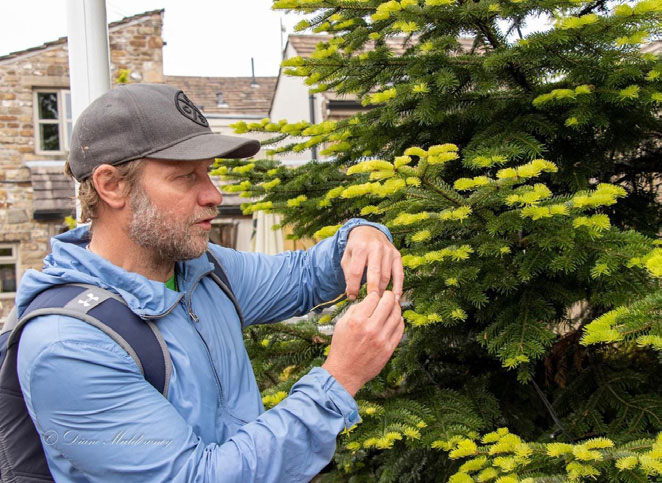
Pete discusses winter foraging.
Remember, caution is your compass; never use or consume anything unless you’re confident in your identification. Always be diligent in checking for contraindications, especially during pregnancy and breastfeeding, and start with a small sample before embracing larger quantities. Some people may have sensitivities or allergies when using wild plants, both topically and when ingesting them. Please don’t forget to forage mindfully and learn the etiquette, especially around caring about nature, as this is also a good way to stay safe.
Herb Robert:
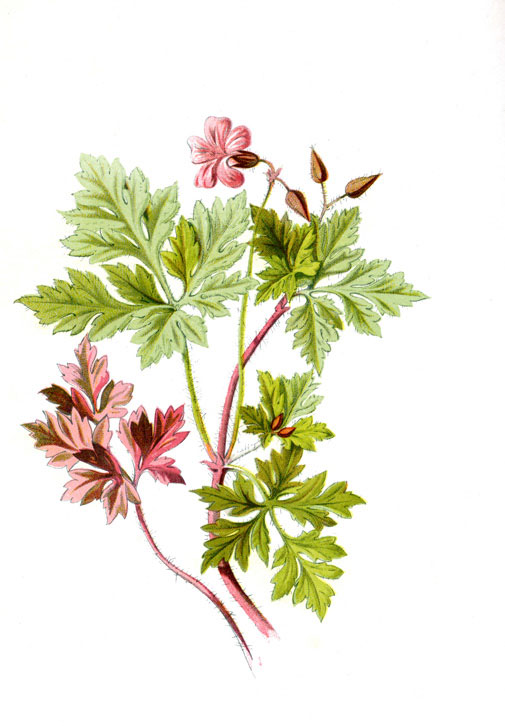
This exceptional winter herb thrives abundantly in the north, adapting to diverse habitats. Its contributions to well-being are manifold. Rich in vitamins and minerals, Herb Robert boasts a richness in vitamin C that fortifies our immune system. Among its many mineral treasures, Germanium shines as a powerful oxygen catalyst, enhancing our body’s ability to optimise oxygen utilisation, and creating an inhospitable environment for pathogens. Its anti-inflammatory properties prove invaluable for kidney and bladder health, and there’s emerging evidence of its potential in managing high cholesterol blood pressure and combating cancer.
Brambles:
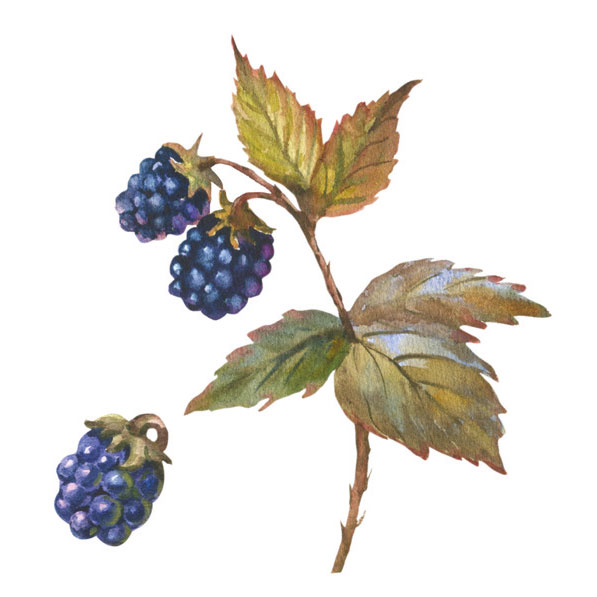
A familiar favourite among foragers, brambles offer more than just the berries. During winter, the leaves remain a valuable resource for crafting wild herb teas. An essential ingredient in almost all the teas I make for myself and others, Bramble leaves are known for their numerous health attributes. They also contain Eugenol, a compound excellent for treating mouth sores like ulcers and abscesses. Crafting a poultice by chewing a leaf (mind those thorns on the central vein) can provide instant and lasting relief.
Ivy as Washing Detergent:
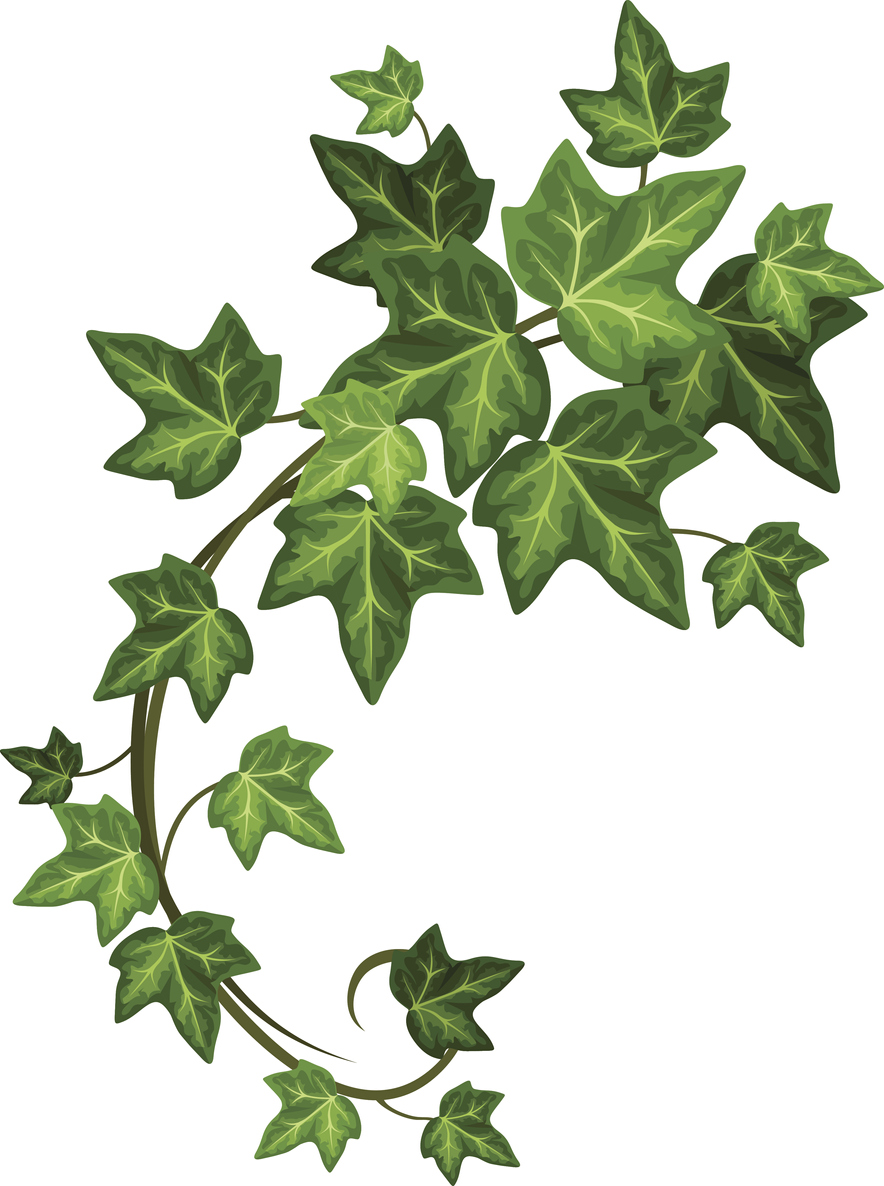
Consider a sustainable alternative by using ivy as a washing detergent for your clothes and bedding. Although toxic to ingest, it’s MUCH kinder to the environment, your wallet, and your skin and respiratory system. Unlike chemical-based detergents that can have detrimental effects, ivy offers a gentle, eco-friendly cleansing solution.
Discover recipes that you can make with your foraged ingredients.
ColneLife Winter 23
